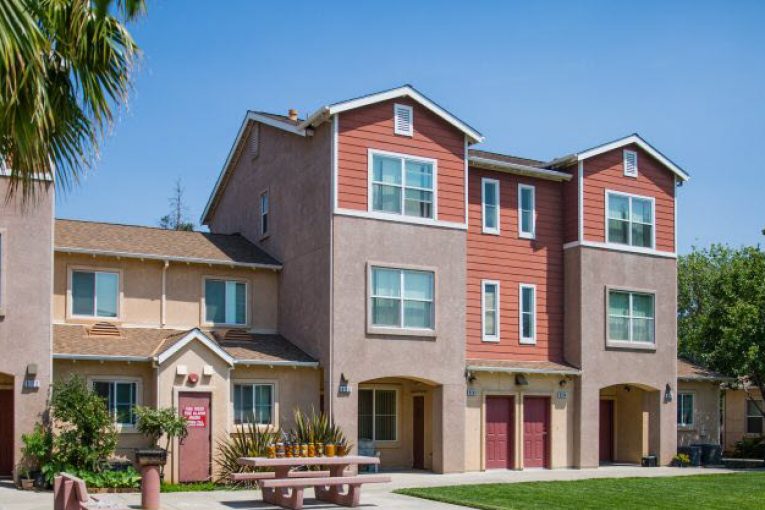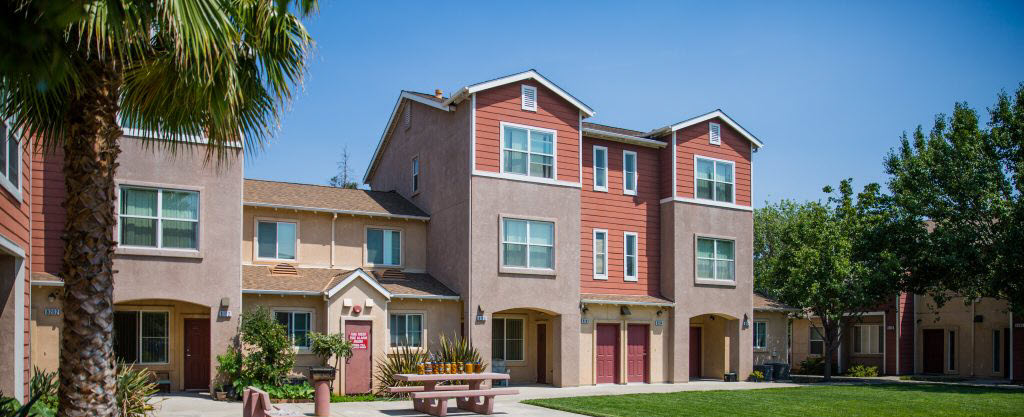

by Ellen Kolarik
This is the 2nd of 3 letters from Interfaith Housing Justice Davis discussing the role a well-funded Housing Trust fund (HTF) could play in addressing the continuum of housing needs in Davis.
If you were to look at our City Housing Element, Appendix A, you would see that our Housing Trust Fund recommends serving 3 broad groups: the unhoused (including emergency shelters, transitional housing, and permanent supportive housing), those needing affordable rental housing, and those seeking affordable home ownership.
This article focuses on the role a HTF could play in providing housing for low-income renters and keeping low-income renters housed when faced with economic adversity.
Expand the housing stock of low-income affordable units
Rents are high in Davis. In March 2022 a California Affordable Housing Needs Report indicated that renters needed to earn 2.8 times the state minimum wage to afford average asking rents in California. Service industry workers, UCD students, teachers and City staff commute into our city because they are unable to find a rental which is affordable on their salary. Our school census is shrinking as families move to surrounding communities. The shortage of affordable housing is real, and it is critical. The state’s Regional Housing Needs Allocation (RHNA) for 2021-2029 demands that Davis create 930 low-income rental units by 2029. If we are unable to produce this housing, the State will apply penalties, which could include fines, loss of permitting authority (including the ability to issue building permits or grant zoning changes), the risk of legal suits and attorney fees and the institution of the ”Builder’s Remedy” which reduces both the city’s and a citizen’s ability to have input on housing projects.
Affordable housing developers draw on multiple sources of funding, including state and federal programs, private lenders, and low-income housing tax credits. In general, the funding gap for building affordable housing after obtaining these other sources is still over $100,000 per unit. Funds from a HTF can sometimes fill the gap between these sources and a completed project. A HTF can also be a source of funds to help the city purchase property for future low-income housing development. It can help the city acquire properties such as former warehouses and administrative buildings that, with collaboration with affordable housing developers, could be converted into low-income units. Finally, a HTF could provide funds that could allow the City to preserve low-income housing stock whose deed restrictions for low-income renters are about to sunset.
Maintain our current affordable housing stock
The City currently has 56 low-income residential developments with a total of 1,952 deed restricted affordable units i.e. units which must be rented below market rate. Nine developments with a total of 305 units have low-income deed restrictions which sunset within the next ten years. Funding from the HTF may provide leverage when working with an owner of an at-risk property to maintain long term affordability.
Eviction protection
STEAC (Short Term Emergency Housing) has been assisting very low-income Davis residents in need with a one-time grant of either $1000 or a single-month’s rent. In FY 2022-2023, STEAC supported 252 families with a total of approximately $217,000 in assistance. However, STEAC is unable to support families facing ongoing lost income due to illness, or injury. A Housing Trust Fund voucher program providing rental assistance for 2-6 months or longer could help sustain a family until the family’s wage earner can return to work.
New revenues for the Housing Trust Fund
The Davis City Council is planning to place a General Revenue measure on the ballot in November 2024 to fund additional city staffing and infrastructure maintenance. We at Interfaith Housing Justice Davis would like to see a portion of the funds raised by this measure directed to the Housing Trust Fund. General revenue measures like this require only 51% to pass but funds raised cannot be earmarked for any specific purpose. However, we, as residents, can demand that our City Council make funding the Housing Trust Fund a priority.
What you can do to support the creation of low-income housing and help keep families facing eviction housed
Let our council know that you support putting at least $1 million annually into the Housing Trust Fund by using funds raised in the revenue measure planned for the November 2024 ballot. Let them know this is a floor, not a ceiling.
Write to your council and tell them that a well-funded HTF with financial oversight and good programs can provide some of the funding needed by affordable housing developers to make low-income developments possible and can help maintain the City’s current low-income housing stock.
Attend council meetings and share in the public comment that you want a HTF that can fund programs that assist in emergency rental payments to keep a family housed when a financial emergency strikes.
Vote YES on the November 2024 General Tax Revenue Measure.
And then continue to use your personal advocacy to remind the council that funding HTF must be an annual commitment.
Ellen Kolarik is co-chair Interfaith Housing Justice, interfaithhjd@gmail.com

Here is a summary of revenue options from an April 2023 staff report.
How much money would we need for a truly effective HTF? If we can’t fund a significant amount of targeted housing using a HTF then we need to consider other options.
Richard, we definitely need to be actively pursuing other options regardless of how viable/impactful the Housing Trust Fund is. City staff should provide a monthly report to City Council of the status and progress of all their efforts to pursue Federal money for affordable housing, State money for affordable housing, and private sector money for affordable housing.
This isn’t an either/or situation. Success with the Housing Trust Fund does not in any way eliminate opportunities for success on the Federal and State levels.
What was accomplished in the Paul’s Place situation is a clear indicator that the private sector is ready and willing to step up when they see a well conceived and well planned project.
I still firmly believe that local municipalities should create their own real estate companies. Why should for profit real estate companies be the only ones making money off of real estate? A municipal real estate company could create market rate housing that generate profits that subsidize much needed affordable public housing (from specific workforce housing for city workers, teachers…etc… to very low affordable housing). If you funded a million a year to acquire and develop real estate (through land option agreements, JVs and leverage) you could produce continuous public housing for the city.
By my calculation, it would take $800 million dollars to buy down 2,000 $900K houses to $500K houses. That provides the magnitude of funds needed to truly have an effective impact on affordable housing availability through subsidies such as a HTF.
You illustrate perfectly why begging the state for money isn’t an efficient solution for producing affordable housing.
If for profit real estate developers can produce houses; why can’t municipalities? For profit developers can take a seed bit of capital and turn it into a large project that produces more homes than the non-profit builders produce. You know what the single biggest risk factor for new development is? It’s being able to work with a local government to get approvals (initially and most importantly entitlements). In fact when you go to a bank or some other financier (like private equity) you have to show your track record as a developer who’s worked with local governments to get projects approved. You have to show what kind of relationship you have with the local government for the current project that you’re seeking funding. But if you’re a municipal developer you can essentially say to a financier: yeah, I can essentially approve stuff for myself. My relationship with the local government? I AM the local government. So what’s the risk? The goal is to produce just enough market rate housing that will for the long term, subsidize the market rate and low income housing units.
Richard’s calculations are accurate, but misleading. The focus of the use of funds should be on purchasing land so that the “normal” process for building Afordable (or even affordable) housing can proceed on that publicly owned land. 10 acres that is worth between $40,000 and $100,000 per acre to the speculative landowner equals $400,000 to $1 million, not $800 million.
Dear Ellen and Interfaith Housing
I applaud your groups interest in creating a long term source of ongoing funding for a Housing Trust Fund.
At the same time I am very concerned about the limited amount that might come in in relationship to the broad number of categories and needs you wish to address.
I am a realist when it comes to affordable low income housing and my observation made on different occasions is that the people of Davis support a myriad of limitless programs to address housing need..
Of course we all want to do our best to solve housing needs but we cannot do all of them with the minimal funds we have or will have.
My belief is that the Housing Trust Fund should address only the creation of new permanently affordable low and moderate income families. With the limited funds available I believe that a better funded HTF will only be able serve the existing need you have already outlined.
There will be little or no funds available to fund new units of permanently affordable housing.
The HTF will have to make choices as to where to expend its limited resources because the need is endless.
I support the City’s efforts to add a resource stream to the HTF only if I am legally assured that most of those funds would be going towards new units of permanently affordable housing.
Creating new units of permantly affordable housing should be the highest priority of the limited resources we will have.
Our community needs a deeper conversation of the uses of the HTF.
David J. Thompson
David J Thompson, my own opinions and not representative of Neighborhood Partners, LLC or Twin Pines Cooperative Foundation.
While I applaud the work of the Interfaith Housing Justice Davis I wonder what other efforts the rest of the faith community is engaged with? Recent changes in law give faith institutions opportunities to step up with land dedications. If combined with non-government organizations like Habitat for Humanity could more be accomplished?